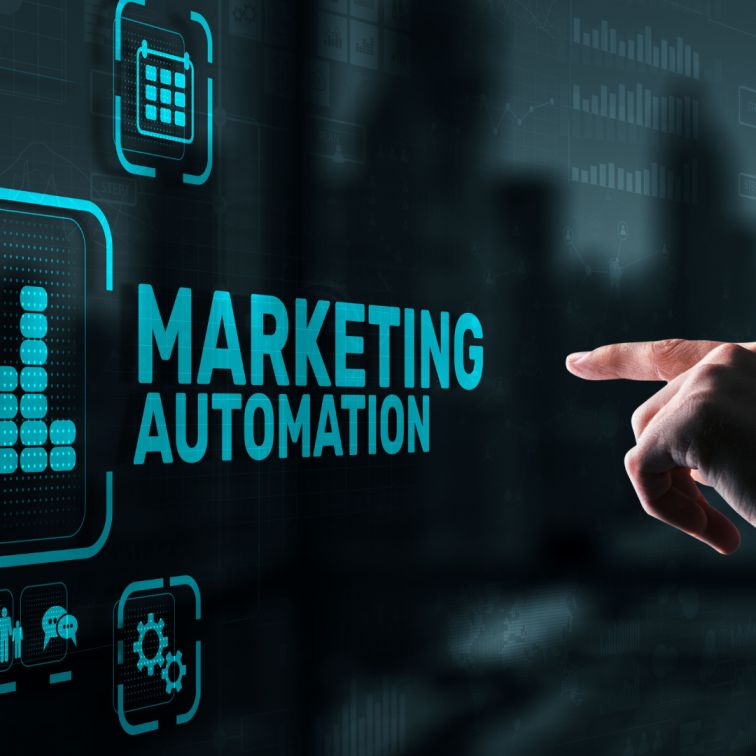What is Marketing Automation?
Marketing automation is the use of technology to streamline, automate, and measure marketing tasks and workflows, allowing businesses to increase operational efficiency and grow revenue faster. Over the years, marketing automation has evolved from simple email marketing tools to comprehensive platforms that can manage multiple aspects of a marketing strategy, including customer segmentation, lead nurturing, social media management, and analytics. As digital marketing becomes more complex, the importance of marketing automation continues to rise, enabling marketers to personalize interactions at scale, optimize campaigns, and achieve better results with less manual effort.
Benefits of Marketing Automation
Enhanced Efficiency and Productivity
One of the most significant benefits of marketing automation is its ability to enhance efficiency and productivity. By streamlining repetitive tasks such as email marketing, social media posting, and lead nurturing, businesses can reduce the manual workload on their marketing teams. Automation allows marketers to focus on more strategic activities, such as campaign planning and creative development. This not only saves time but also ensures that marketing efforts are consistent and timely, which is crucial for maintaining customer engagement and driving conversions.
Improved Customer Segmentation and Targeting
Marketing automation allows businesses to better understand and segment their audience, leading to more personalized and effective campaigns. With the ability to collect and analyze customer data, marketers can create targeted campaigns that resonate with specific segments of their audience. Personalized interactions, whether through tailored email content, targeted ads, or customized product recommendations, can significantly improve customer satisfaction and loyalty. By leveraging data-driven insights, businesses can ensure that their marketing messages are relevant and impactful, leading to higher engagement rates and better overall performance.
Increased ROI and Revenue Growth
Marketing automation can also drive significant increases in ROI and revenue growth. By optimizing campaigns and improving targeting, businesses can achieve better results with their marketing efforts. Automation tools often come with built-in analytics and reporting features that allow marketers to track the performance of their campaigns in real-time. This data can be used to refine strategies, allocate resources more effectively, and ultimately, maximize ROI. Additionally, case studies have shown that companies that implement marketing automation often see substantial improvements in their lead conversion rates and overall revenue.
Key Marketing Automation Tools
Email Marketing Automation
Email marketing remains one of the most effective channels for engaging with customers, and automation can take it to the next level. Popular tools like Mailchimp, HubSpot, and Active Campaign offer features such as automated email sequences, A/B testing, and advanced segmentation. These tools enable businesses to send the right message to the right audience at the right time, enhancing the effectiveness of their email campaigns. Best practices for email marketing automation include personalizing content, using clear calls to action, and regularly analyzing performance metrics to optimize future campaigns.
CRM Integration
Integrating Customer Relationship Management (CRM) systems with marketing automation platforms is a powerful way to enhance marketing efforts. CRM integration allows businesses to manage and analyze customer interactions across various touchpoints, providing a comprehensive view of customer behavior. This integration enables more personalized marketing, as it allows for the seamless transfer of data between systems. Top CRM systems like Salesforce, Zoho CRM, and Microsoft Dynamics are widely used in conjunction with marketing automation platforms, helping businesses to streamline their processes and improve customer relationships.
Social Media Automation
Social media automation tools help businesses manage their social media presence more efficiently by scheduling posts, monitoring engagement, and analyzing performance. Tools like Hootsuite, Buffer, and Sprout Social offer features that allow marketers to plan and publish content across multiple platforms, track mentions and interactions, and measure the success of their campaigns. By automating social media activities, businesses can maintain a consistent presence on social platforms, engage with their audience more effectively, and free up time for other important tasks.
Strategies for Implementing Marketing Automation
Setting Clear Goals and Objectives
Before implementing marketing automation, it is essential to set clear goals and objectives. These should align with the overall business goals and provide a framework for measuring the success of automation efforts. For example, a company might set a goal to increase lead conversion rates by 20% within six months or to reduce the time spent on manual tasks by half. Clear objectives help to ensure that the chosen automation strategies are effective and provide a basis for ongoing performance evaluation and strategy adjustment.
Choosing the Right Tools and Platforms
Selecting the right marketing automation tools and platforms is crucial for the success of your strategy. Factors to consider include the size of your business, the complexity of your marketing efforts, and your budget. It’s important to compare different platforms based on features, ease of use, scalability, and integration capabilities. Popular options include HubSpot, Marketo, and Pardot, each offering unique advantages depending on your specific needs. A thorough evaluation will ensure that you choose a tool that not only meets your current requirements but can also grow with your business.
Training and Adoption
The successful implementation of marketing automation requires more than just choosing the right tools; it also involves preparing your team for adoption. Providing comprehensive training on the new tools and processes is essential to ensure that everyone is on board and can use the automation features effectively. Overcoming resistance to change is another challenge that businesses may face. Addressing concerns, highlighting the benefits of automation, and offering continuous support can help ease the transition and ensure that the team fully embraces the new system.
Best Practices for Successful Marketing Automation
Personalization and Customer Experience
One of the keys to successful marketing automation is personalization. By creating tailored content and offers, businesses can enhance the customer experience and build stronger relationships with their audience. This can be achieved by leveraging customer data to deliver relevant messages, offers, and recommendations that resonate with individual preferences and behaviors. Personalization not only improves engagement but also increases the likelihood of conversion, making it a critical component of any marketing automation strategy.
Monitoring and Analyzing Performance
To get the most out of marketing automation, it’s important to continuously monitor and analyze the performance of your campaigns. Key metrics to track include open rates, click-through rates, conversion rates, and ROI. Analyzing this data helps to identify what’s working and what’s not, allowing businesses to make informed decisions and optimize their strategies accordingly. Regular performance reviews ensure that marketing efforts remain aligned with business goals and that any necessary adjustments are made in a timely manner.
Staying Updated with Trends and Innovations
Marketing automation is a rapidly evolving field, with new trends and technologies emerging regularly. Staying updated with these changes is essential to maintaining a competitive edge. Emerging trends such as AI-driven automation, predictive analytics, and advanced customer journey mapping offer new opportunities to enhance marketing efforts. By staying informed and adapting to these innovations, businesses can continue to improve their marketing automation strategies and achieve even greater success.
Conclusion
As marketing automation continues to evolve, its impact on business success becomes increasingly significant. By understanding the benefits, selecting the right tools, and implementing effective strategies, businesses can harness the power of automation to streamline their marketing efforts, enhance customer experiences, and drive revenue growth. Staying updated with the latest trends and best practices will ensure that your marketing automation strategy remains effective and relevant in the ever-changing digital landscape.





